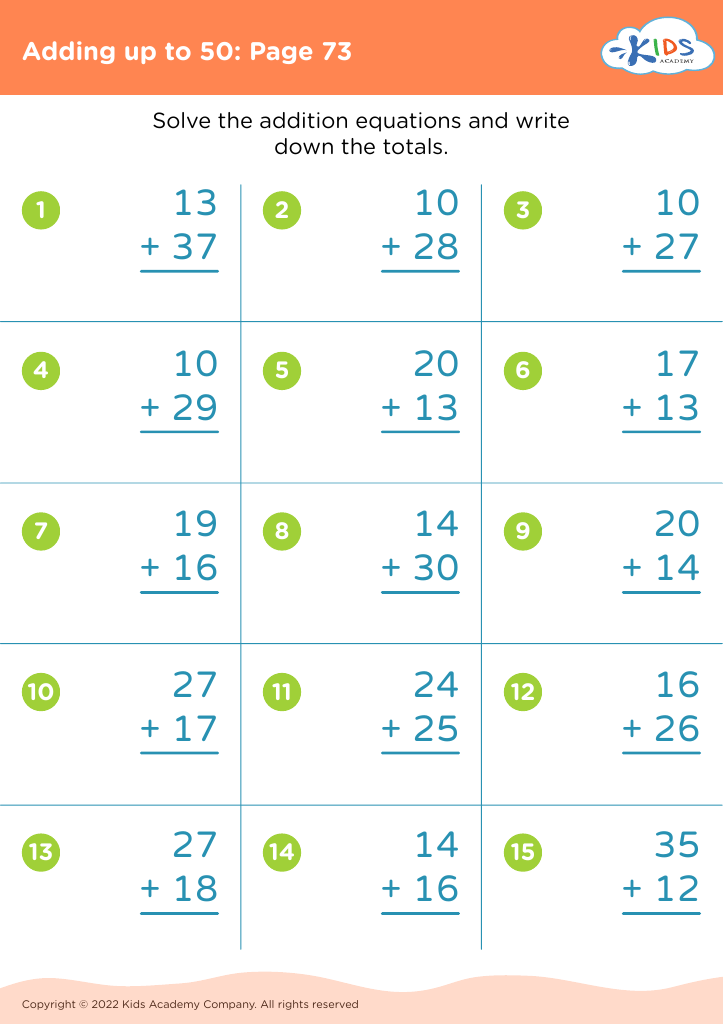Matching skills Addition Worksheets for Ages 5-7
3 filtered results
-
From - To
Enhance your child's math abilities with our "Matching Skills Addition Worksheets for Ages 5-7". These engaging resources are expertly crafted to develop young learners' understanding of addition with fun, interactive matching activities. Perfect for early grade students, our worksheets help children practice adding numbers within manageable ranges while improving their matching and memory skills. Colorful images and creative exercises keep kids motivated and enthusiastic. Ideal for use at home or in the classroom, our worksheets provide the perfect blend of education and entertainment, ensuring your child builds a solid foundation in math while enjoying the learning process.
Parents and teachers should care deeply about fostering matching skills and addition in children ages 5-7 because these foundational skills are crucial for their cognitive development. At this age, children are in the early stages of concrete operational thought, a period identified by developmental psychologist Jean Piaget, where they begin to understand logical concepts and can use basic logic in their thinking processes.
Matching skills enhance a child’s ability to recognize patterns, categorize objects, and establish connections between ideas. These skills are essential not only in mathematics but across various subjects and everyday problem-solving scenarios. When children can identify similarities and differences, they naturally improve their attention to detail and observation skills, which are critical for academic success.
Addition, a fundamental arithmetic skill, builds on matching and counting abilities. It forms the basis of all future mathematical learning, such as multiplication, division, and algebraic thinking. Development of addition skills during early years boosts a child’s ability to understand quantity, perform basic calculations, and foster a positive attitude toward mathematics from an early age.
By focusing on matching skills and addition, parents and teachers are setting the groundwork for comprehensive cognitive development, enhancing academic performance, and supporting the development of critical problem-solving skills, which are applicable beyond the classroom.


















